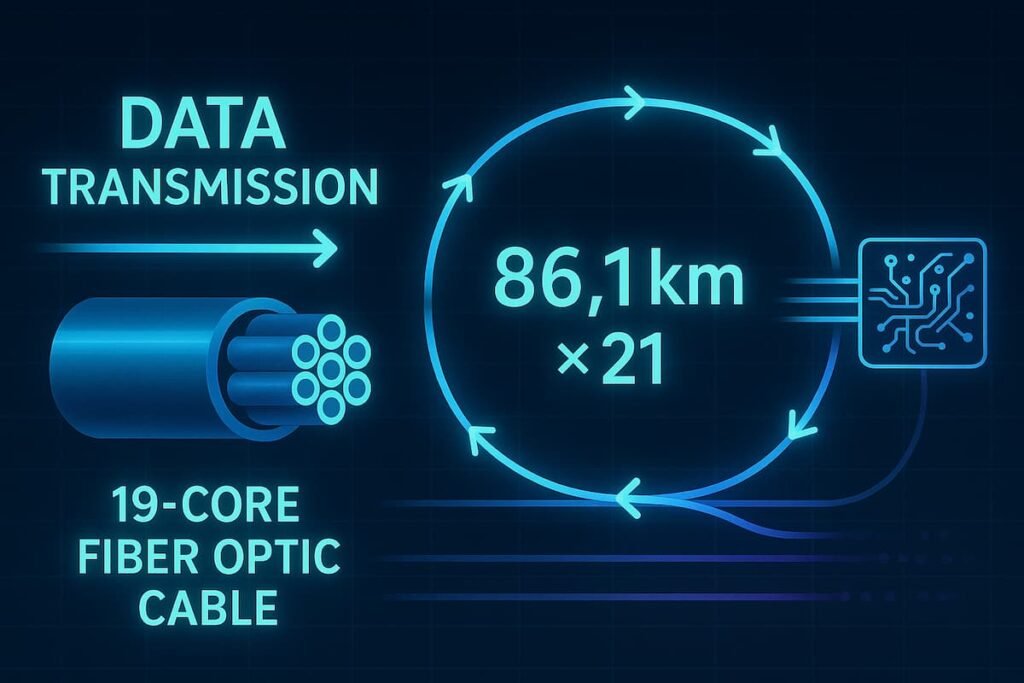Japan Internet Speed Record. How fast is fast enough? Not even close, according to Japan.
The country’s National Institute of Information and Communications Technology (NICT) has just shattered the global internet speed record by reaching a staggering 1.02 petabits per second. That’s enough to download Netflix’s entire library in a single second — and it’s millions of times faster than what most people experience at home.
But this isn’t just a race of numbers. It’s the beginning of a new era in global connectivity.
🔹 What Does 1.02 Petabits/Second Mean?
🚄 Let’s Put It Into Perspective
- 1.02 petabits per second = 1,020,000,000 Mbps
- 16 million times faster than India’s average broadband
- 3.5 million times faster than the US average
Imagine downloading:
- Every video game on Steam in under 10 seconds
- 127,500 years of music in one second
- 10 million 8K videos simultaneously
This is more than speed — it’s a redefinition of what’s possible.
🔹 The Tech Behind the Record
🧪 Fiber Optics, But Supercharged
NICT didn’t just push existing tech — they reimagined it. Partnering with Sumitomo Electric and European researchers, they built a 19-core fiber optic cable. Each core acts like a dedicated lane in a 19-lane data highway, but all inside a standard-sized fiber (0.125 mm). That means compatibility with today’s infrastructure — no need to dig up the planet.
📏 Record-Breaking Over Distance
The test wasn’t just about speed. It was about stability across long distances:
- 19 fiber rings, each 86.1 km long
- Signal repeated 21 times
- Total distance: 1,808 km (roughly London to Rome)
- Data per kilometer: 1.86 exabits/second — the highest ever
This proves the tech isn’t a lab fantasy — it’s ready for real-world rollout.
🔹 A World Still Playing Catch-Up
🌍 Global Internet Speeds in 2025
While Japan is reaching for the stars, most of the world is still stuck on the launchpad.
| Country | Avg. Speed (Mbps) |
|---|---|
| Singapore | 345.33 |
| UAE | 313.55 |
| Hong Kong | 312.48 |
| USA (avg) | 214.00 |
| India | 61.66 |
| Delaware, USA | 246.95 (highest) |
| Idaho, USA | 124.57 (lowest) |
Despite rising data consumption (India alone now averages 27.5 GB per user/month), the infrastructure isn’t keeping up. That’s where Japan’s breakthrough becomes even more important.
🔹 The Future: Post-5G and Beyond
💡 More Than Just Speed
According to NICT, this new tech can:
- Handle 26x Japan’s entire fixed broadband traffic (as of Nov 2024)
- Power post-5G infrastructure
- Support the explosive growth of AI, cloud computing, and immersive tech
This is the future backbone for:
- AI model training
- VR streaming
- Global scientific collaboration
- Satellite internet systems
- Disaster response communications
🔹 What’s Next?
🔮 A Glimpse Into Tomorrow
If this technology becomes widely implemented, we’re talking about:
- Ultra-HD streaming with zero lag
- Instantaneous downloads of huge datasets
- Seamless real-time communication across continents
- Empowerment of smart cities and autonomous systems
But mass rollout will still take time — and investment.




